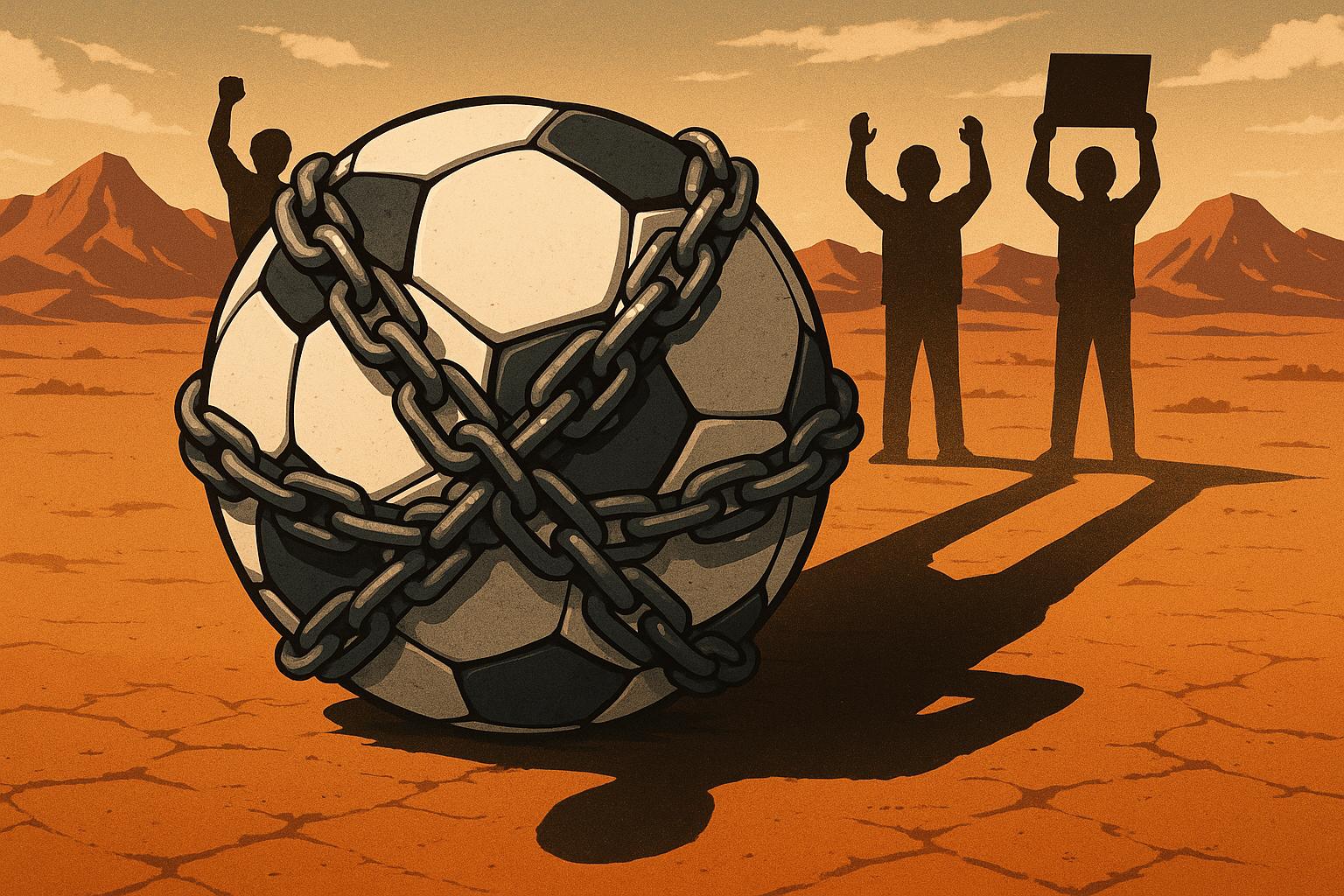The decision by FIFA to award Saudi Arabia the 2034 World Cup has sparked considerable controversy, with a prominent group of legal experts accusing the organisation of neglecting its own human rights regulations. This serious allegation emerges in the context of ongoing debates regarding "sportswashing," wherein nations with poor human rights records host significant sporting events to improve their global reputation. The concerns have been formally articulated in a 30-page complaint filed by notable figures, including FIFA’s former anti-corruption advisor, Mark Pieth, which underscores the critical need for reform in various areas of human rights prior to the tournament.
The complaint identifies several pressing issues: freedom of expression and association, the treatment of detainees—including arbitrary arrests and the death penalty, judicial independence, migrants' rights, and the rights of women. It argues that Saudi Arabia’s successful bid failed to demonstrate adherence to these vital human rights standards. The legal team highlights that FIFA’s approval obliges the organisation to ensure that internationally recognised human rights are upheld in the host country, yet there is a lack of evidence that any such measures are being actively pursued. The complaint demands that FIFA take immediate action to rectify these failures, stressing that the situation requires urgent remediation.
At the forefront of the conversation is the pervasive issue of labour exploitation in Saudi Arabia, which continues to be a significant threat as the country gears up for the event. Reports from Human Rights Watch detail systemic abuses faced by migrant workers, including delayed payments, confiscated documentation, and exposure to hazardous working conditions. The Kafala sponsorship system, which governs the employment of foreign workers in the Gulf region, has been criticized for enabling such exploitation. Despite some reforms, many argue that the necessary protections are still insufficient and do not meet international labour standards.
Additionally, organisations such as Amnesty International have issued calls for FIFA to suspend the 2034 World Cup bidding process unless substantial human rights safeguards are enacted. These calls emphasise the need for binding protections that address forced evictions, labour rights, and discrimination against women and LGBTQ+ individuals. Recent assessments have raised questions about FIFA’s commitment to human rights, revealing substantial shortcomings in the evaluation of Saudi Arabia’s bid and the implications it carries for the global football community.
The ramifications of this decision extend beyond the sport, as critics note that awarding high-profile events to nations like Saudi Arabia typically does little to catalyse genuine social reform. The prevailing view among human rights advocates is that the inherent structures of power within such regimes disincentivise positive change. The complaint sent to FIFA echoes these sentiments, urging the organisation to collaborate with Saudi authorities on a transparent action plan rather than presuming that positive reforms will occur spontaneously.
FIFA President Gianni Infantino has described the decision as a “positive step,” yet many observers remain sceptical, urging the organisation to rethink its priorities in light of clear evidence of human rights violations. The situation highlights an ongoing tension between the allure of wealth and prestige offered by states like Saudi Arabia and the moral obligation of international sporting bodies to uphold human rights standards.
As the countdown to the 2034 World Cup begins, the debate surrounding the implications of FIFA's choice intensifies. With a coalition of human rights organisations demanding accountability and reform, the success or failure of this World Cup could set a significant precedent for future international sporting events in similarly controversial host nations. The world's attention will remain keenly focused on the unfolding narrative, with the hope that it may indeed lead to meaningful advances in human rights practices within Saudi Arabia and beyond.
Reference Map:
- Paragraph 1: Sources 1, 4
- Paragraph 2: Sources 1, 4, 5
- Paragraph 3: Sources 2, 4, 6
- Paragraph 4: Sources 3, 7
- Paragraph 5: Sources 1, 6, 7
- Paragraph 6: Sources 1, 4, 5
- Paragraph 7: Sources 5, 6, 7
- Paragraph 8: Sources 1, 2, 5
Source: Noah Wire Services
